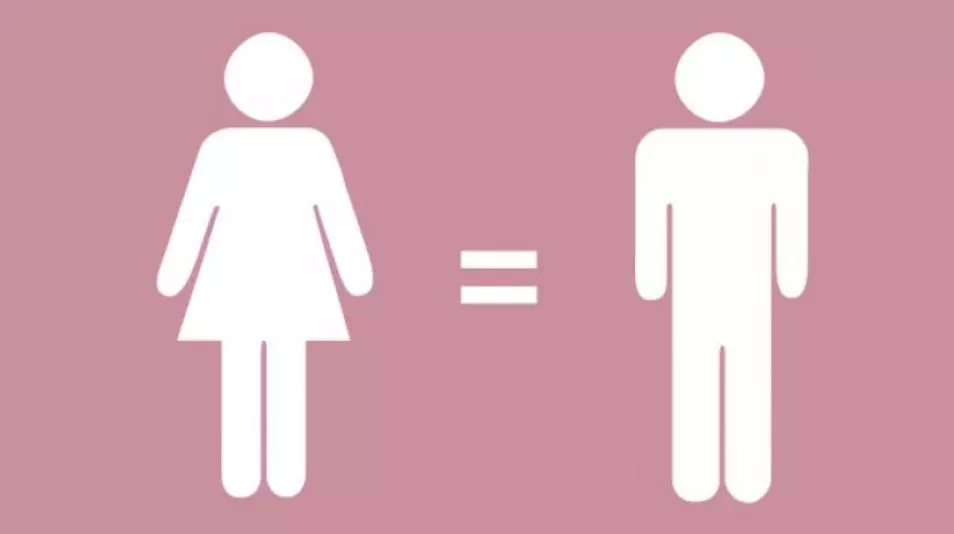Gender sensitisation should involve men: Report

Hyderabad:Involving men in gender sensitisation is crucial to achieving gender equality, a recent Asian Development Bank study reveals. The report examines gendered disparities in access, affordability and leadership across sectors like education, health, agriculture, energy, finance, transport and sanitation. While progress is evident in education and health, male-dominated sectors like transport, energy and finance remain largely untouched by gender mainstreaming efforts.
The study notes that gender-transformative programmes involving men and boys have led to measurable impacts such as reduced gender-based violence, increased male participation in promoting sexual and reproductive rights, changed gender norms, and stronger support for women's economic empowerment.
For example, in the education sector, the report presented the case study of Study Hall Education Foundation's work. The foundation runs schools for girls and boys in low-income areas and students participate in group dialogues on topics such as gender, poverty, caste, domestic violence and sexual harassment both inside and outside classrooms. This is a better approach than working in sex-segregated groups which prevents conversations from becoming comprehensive, the study said.
The study highlighted the limited impact of government schemes in transforming the lives of women. For instance, schemes like Pradhan Mantri Ujjwala Yojana have only provided some relief to women but have not structurally transformed their lives. Many women have opted out of the scheme due to traditional gender dynamics and the easy availability of traditional options. A. Ray, a software engineer, emphasised the role of private companies in advancing gender equality. "The male-to-female ratio in my company is 6:1. While diversity hiring and awareness campaigns have improved representation, more focus on bias reduction, women in leadership and expanded opportunities are needed. Involving men in these efforts is vital," he said. A post-graduate student at Osmania University, Sushit Goud, said the skewed gender ratio in classrooms of colleges and universities is a big indicator of continued gender disparity in society.
The report says it is important to understand the concept of masculinity, especially "toxic masculinity" to address gender inequality. The term refers to cultural norms that define men as emotionally reserved, tough, and resistant to vulnerability. Psychotherapist Mallika Chandrasekhar explains that toxic masculinity often stems from unresolved emotional wounds from childhood. She identifies two scenarios that foster this mindset: one where a child is deprived of maternal love and seeks entitlement as compensation and another where overindulgence from a mother leads to the belief that others owe him devotion.
Chandrasekhar argues that addressing these root causes requires early intervention in classrooms and homes, where boys can be taught respect for women from an early age. "This is a conversation that has to take place when the boys are at an impressionable age and with women around them at home. When he sees women as capable and worthy, perhaps the difference and the toxic attitude will not play a part in his relationships. Then the vocabulary also needs to be checked. Better vocabulary inside the house and outside. We can stop using swear words that have reference to females. Books that inspire an outlook of equality could be made compulsory to read while they are growing up. Stop publishing images where women are objectified," she added.
Krithika Narayanswamy, a PhD scholar from the University of Hyderabad, researching the sociology of gender, mentioned that literature shows that violence against women is often not just a public issue but also a domestic one. Sensitising men about women's rights, particularly in communities where gender norms are entrenched, can lead to significant change. For instance, community leaders in minority groups can play a crucial role in raising awareness and initiating discussions on both physical and structural violence against women. These discussions take place at individual, family and community levels.
"'Toxic masculinity' isn’t just about breaking down emotional barriers; it requires deeper engagement and the acknowledgment of vulnerabilities," said Narayanswamy adding "Forcing individuals to conform to rigid societal norms, such as heteronormativity, often fuels toxic and violent behavior."

